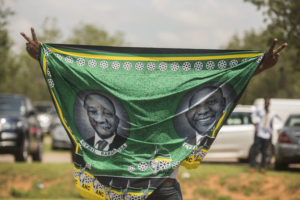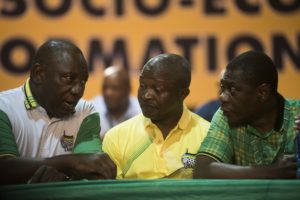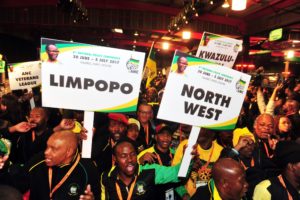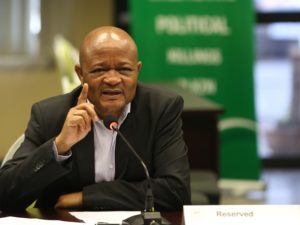Thebogo Khaas: Winning at all costs
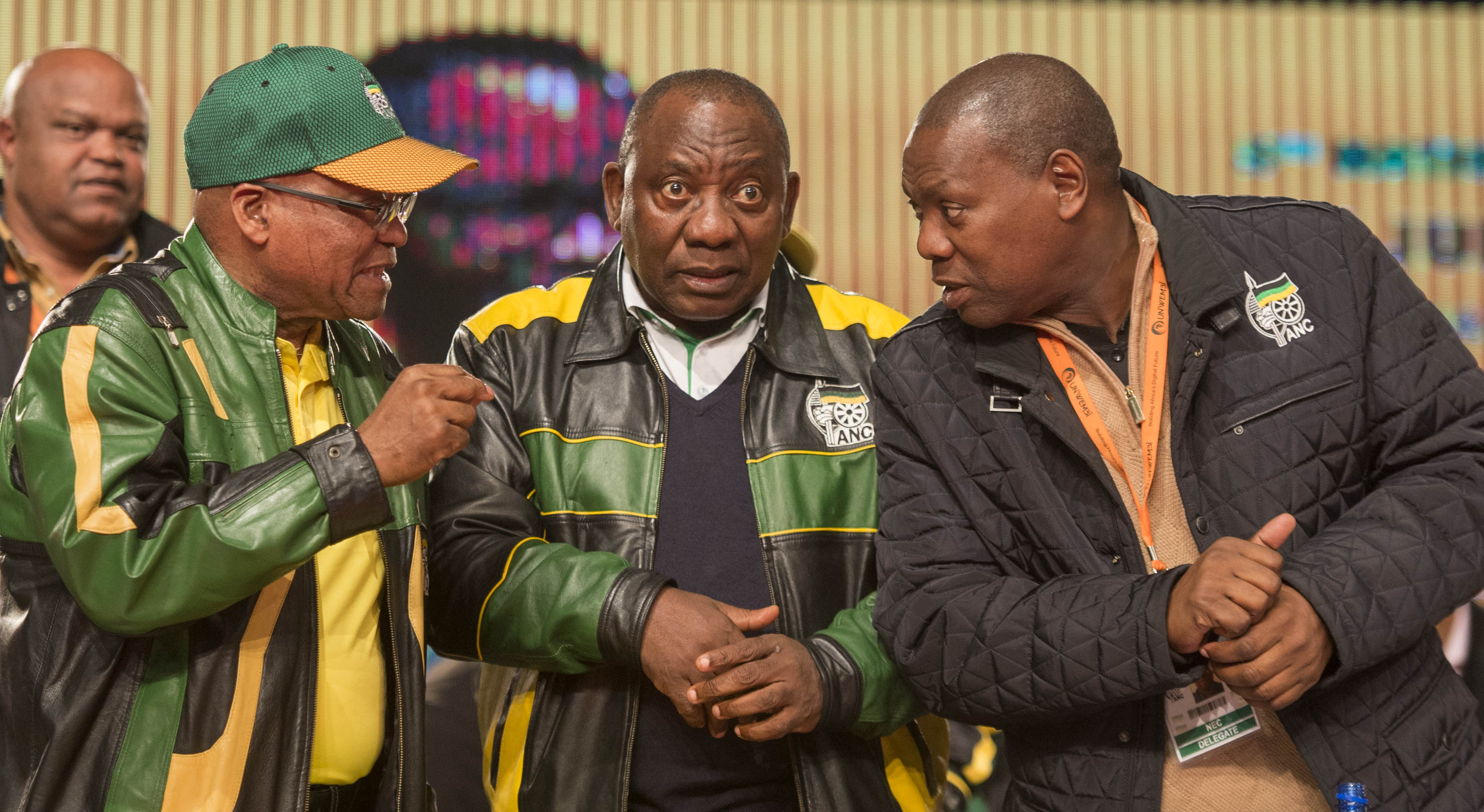
JOHANNESBURG, SOUTH AFRICA – JULY 05: Deputy President Cyril Ramaphosa and his deputy, Cyril Ramaphosa with Zweli Mkhize during the African National Congress (ANC) 5th national policy conference at the Nasrec Expo Centre on July 05, 2017 in Johannesburg, South Africa. 3500 delegates from branches across the country gathered for the conference to discuss the party’s policies going into the elective conference in December, where changes and new policies will be ratified. (Photo by Gallo Images / Beeld / Deaan Vivier)
We all love to win. We also relish the company of winners.
Winning is encoded in our DNA as a species bestowed with inviolate dominion over this planet and its inhabitants. It is, however, equally important how we win.
Let me explain.
ANC deputy president Cyril Ramaphosa has an illustrious history in the struggle for freedom in South Africa.
He has also established one of the most extensive black-owned business empires. Notwithstanding his accomplishments, he remains an enigma to many, including ANC members.
Mention Ramaphosa’s name and you are guaranteed to evoke an eclectic mix of emotions across the political, racial and class divides.
His formidable detractors include leaders of the Economic Freedom Fighters and President Jacob Zuma’s apologists.
In their eyes, he has the blood of 34 deceased Marikana mine workers on his hands, despite a judicial commission of inquiry absolving him of culpability in the tragedy and his contrition over it.
They emphasise that his role in that tragedy, particularly his fervent defence of his and Lonmin’s interests at the time, disqualifies him from ascending to the highest office in the land.
Ramaphosa is also accused of being in the clutches of “white monopoly capital”.
This red herring is often tossed by Zuma’s apologists at anyone they regard as a threat to those conniving to pillage public coffers.
Perhaps the most chilling allegation against Ramaphosa is that his Broad-Based Black Economic Empowerment (BBBEE) Commission recommendations were not radical enough and ostensibly privatised the BBBEE project for a few political elite.
His critics lament that the BBBEE Act, a consequence of his commission recommendations – concomitant (pun intended) with the Preferential Procurement Policy Framework Act – buttressed white interests in the new economic order.
Furthermore, financial beneficiaries of most BBBEE deals have traditionally been politically connected individuals. These individuals provide a buffer between genuine black economic aspirations and white minority hegemony over the economy.
This, they claim, is largely how Ramaphosa amassed his immense wealth.
Consequently, this spawned a pervasive culture of cronyism and patronage – a precursor to the current Gupta family hegemony and brazenness.
As he trudges towards the ANC electoral chequered flag, Ramaphosa faces intense opposition for the presidency.
Zuma’s apologists do not want Ramaphosa to succeed him.
They correctly suspect that Ramaphosa, unlike Nkosazana Dlamini-Zuma, probably would not deter the pursuit of outstanding corruption charges against Zuma.
She, unlike Ramaphosa, is perceived as less inclined to upset Zuma and his cronies’ grand-graft apple cart.
Ramaphosa has publicly declared his support for the establishment of a judicial commission of inquiry into state capture by the Gupta family.
It appears that most of Ramaphosa’s criticism is about optics rather than substance.
While he must remain sensitive to public perception, he shouldn’t deign to respond to all unwarranted criticism. Like former president Kgalema Motlanthe, he is perceived as weak and devoid of Machiavellian machinations.
Some of his supporters beseech him to demonstrate political skulduggery.
I beg to differ.
I believe that one doesn’t have to play dirty to win or, as only Julius Malema could say, jump into a pigsty to overcome a swine.
As she hits the stumps, all Dlamini-Zuma seems to do is reconfirm a scientific theorem that light travels faster than sound. She certainly does look bright until one hears her speak.
How on earth would anyone contrive an outright untruth that former model C schools taught our children to hate the ANC, and that it is corrupt and bad?
Incredible!
The truth is: Dlamini-Zuma’s former husband has not endeared himself as a paragon of virtue to our children.
Also, the ANC is doing a fantastic job of cultivating its own public resentment through its arrogance and self-immolation at Zuma’s behest.
Widely considered frontrunners, Ramaphosa and Dlamini-Zuma are, however, not the only competitors for the soul of the party.
ANC National Executive Committee member Lindiwe Sisulu’s recent public flirtations with running for president were welcomed by those who are not content with the front-runners.
She is thus cast as a dark horse in the race. Interestingly, she is also considered by some as Ramaphosa’s potent running mate should he seek to placate those clamouring for a future ANC woman president.
What Sisulu and Ramaphosa may lack in political chicanery they more than make up for with their apparent providence, acumen, integrity and appreciation of the ideals enshrined in our Constitution.
But these virtues count for nothing as ANC party factions reign. So far, Dlamini-Zuma appears more determined, if not desperate, to secure the ANC presidency than Ramaphosa.
It is feared, though, that her success would precipitate electoral defeat for the ANC in 2019.
Only time will tell who, amongst the various competing forces, emerges victorious in the end.
However, win or lose, Ramaphosa and Sisulu embody the qualities demanded of scions of our political forebears.
Lest we forget: winning is nice as long as you don’t lose your integrity in the process.
Khaas is executive chairman of Corporate SA, a strategic advisory consultancy.
* This article was first published in City Press on 7 May 2017.
(Photo credit: Gallo Images / Beeld / Deaan Vivier)
